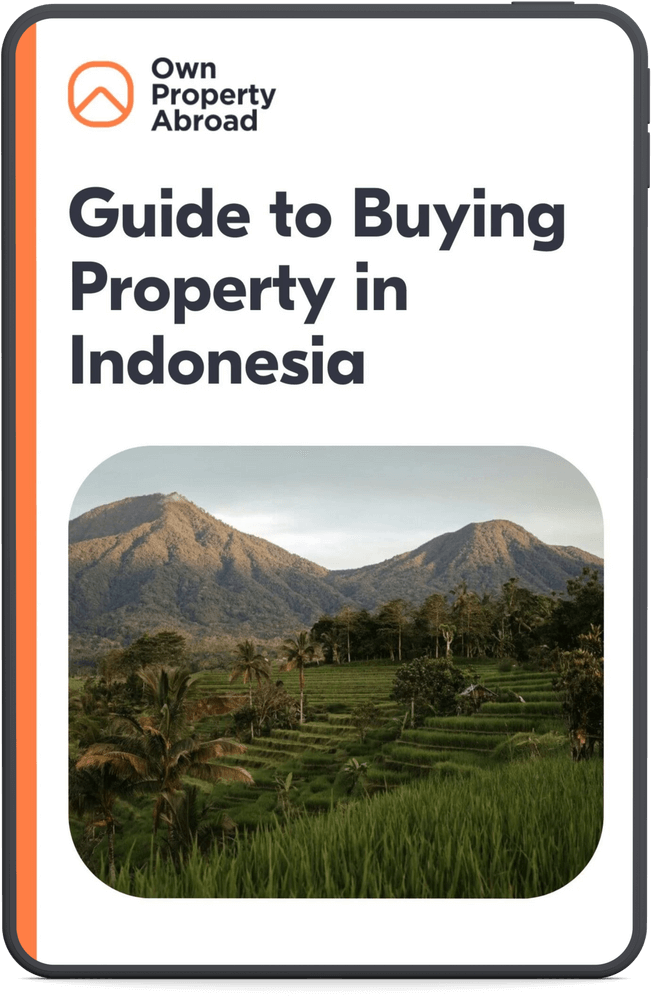Types of legal entities in Indonesia
It’s crucial to start with understanding the legal entities available before doing business in Indonesia. This will ensure compliance with local regulations. Here is a breakdown of the options:
1. Foreign-owned limited liability company (PT PMA)
The PT PMA is an excellent choice for foreign investors seeking to engage in commercial activities within Indonesia. This entity requires a minimum of two shareholders and allows for 100% foreign ownership in numerous sectors, making it ideal for doing business in Indonesia.
Valuable insights and practical advice, distilled from years of expertise and real-world experience.


2. Local limited liability company (PT)
PT is the preferred option for Indonesian citizens or businesses with the majority in Indonesian ownership. It is the standard choice for local entrepreneurs.
3. Representative offices
KPPAs, known as the representative office, are suitable for international companies that wish to explore the Indonesian market without engaging in direct sales. However, their functions are limited, and they cannot generate profits within Indonesia.
Each legal entity fulfills different business needs and adheres to specific regulations concerning ownership, capital, and operational scope.
What are the requirements for starting a foreign-owned company in Indonesia?
Foreigners seeking to enter the Indonesian market need to understand the requirements for starting a business in Indonesia. To establish a company in Indonesia, specifically a PT PMA, one must meet a series of requirements:
- Investment plan: Outline an investment plan indicating capital exceeding IDR 10 billion ($610,000).
- Minimum capital: Secure a minimum issued and paid-up capital of IDR 2.5 billion ($152,500).
- Shareholder contributions: Each shareholder must inject at least IDR 10 billion ($610,000) or its equivalent in USD.
- Shareholder structure: A minimum of two shareholders, which can be individuals, corporate entities, or a combination, is required.
- Company name approval: Obtain approval for your company name from the Ministry of Law and Human Rights to ensure it’s unique and compliant with Indonesian regulations.
- Business sector: Ensure your business sector is not restricted by the Negative Investment List.
- Licenses and permits: Acquire all necessary licenses and permits from relevant authorities, including the domicile letter and Business Identification Number (NIB).
- Tax registration: Register for taxes and obtain a Tax Identification Number (NPWP).
- Business bank account: Open a corporate bank account in Indonesia for business transactions.
- KITAS for foreign directors: Ensure foreign directors apply for and receive a KITAS to legally reside and operate in Indonesia.
How long does it take to start a business in Indonesia?
Starting a business in Indonesia takes approximately two to four weeks with Own Property Abroad. However, it’s essential to understand that the process can be influenced by several factors, such as the complexity of your business, the sector in which you intend to operate, and the documentation needed for your business field. Additional permits or licenses may be required in certain instances, which could prolong the process.
Additionally, different regions within Indonesia may have varying administrative processing speeds, and the involvement of other agencies can also impact the timeline.
Benefits of starting a business in Indonesia
Indonesia’s booming economy and strategic location offer many benefits for foreign entrepreneurs who want to do business in Indonesia, including:
- Strategic geographic location: Indonesia’s position as a central hub in the ASEAN region offers access to major Asian markets, facilitating easier export and import processes. This makes it an ideal base for trading and manufacturing businesses looking to expand their reach.
- Government incentives: The Indonesian government offers various incentives to foreign investors, including tax holidays, reduction of import duty tariffs, and investment allowances, particularly for businesses operating within Special Economic Zones (SEZs).
- Dynamic consumer market: Indonesia’s vast archipelago is home to a population exceeding 270 million, providing an extensive and dynamic consumer base. The diversity in culture and consumer preferences across regions opens up numerous market niches for businesses to explore and serve.
- Improving ease of doing business: Recent reforms and the introduction of the Online Single Submission (OSS) system have streamlined business registration and licensing, significantly improving the ease of starting and operating a business in Indonesia.
Starting a business in Indonesia in 6 steps
Starting a business in Indonesia is a promising venture for many foreign investors. To understand how to start a business in Indonesia, here’s a more detailed breakdown of each step in the process:
Step 1: Check the negative investment list
Before starting a business in Indonesia, it’s essential to consult the Negative Investment List (Daftar Negatif Investasi, DNI). This document outlines specific sectors restricted or utterly off-limits to foreign investment and requires local partnerships.
Changes were made in 2023 to open more sectors to foreign investment. Still, reviewing the most current version of the DNI is essential to ensure your business sector is eligible for foreign ownership.
Step 2: Choose a business entity and company name
Selecting the right legal entity is foundational for doing business in Indonesia. Most foreign investors opt for establishing a PT PMA due to its flexibility in allowing foreign ownership. The PT PMA requires a minimum of two shareholders, which can be individuals or corporations, and must adhere to a minimum capital requirement. Afterward, you must secure a company name, which involves submitting a name proposal to the Ministry of Law and Human Rights. The name should not be similar to existing companies and must comply with Indonesian naming rules.
Step 3: Acquire your Deed of Incorporation
Creating your Deed of Incorporation involves drafting your company’s Articles of Association, which outlines the company’s operational guidelines, structure, and governance. This deed must then be approved and legalized by a Public Notary before being submitted to the Ministry of Law and Human Rights for your company to be officially recognized as a legal entity.
The Articles of Association will detail the share structure, board composition, and other critical operational details, ensuring compliance with Indonesian corporate governance standards.
Step 4: Obtain the necessary licenses and permits
After your Indonesian company is legally established, the next step is to obtain the necessary business licenses and permits. This includes the NIB (Business Identification Number), which is a general license for your operation, encompassing import licenses, a business registry, and the company’s operational permit.
The NIB is obtained through the OSS (Online Single Submission) system, streamlining the process. Depending on your business sector, additional licenses or permits may be required, which can also be applied through the OSS system or, in some cases, directly from the relevant ministry.
Step 5: Tax registration
Every business in Indonesia must register for taxes to obtain a Tax Identification Number (NPWP). This number is crucial for fulfilling tax obligations and conducting bank transactions and is a prerequisite for many other steps in starting a business in Indonesia. The tax registration process involves submitting your company details to the local tax office, after which you will receive your NPWP.
Step 6: Open a bank account and apply for KITAS
Opening a corporate bank account in Indonesia is a mandatory step that requires presenting your company documents, NPWP, and a minimum deposit, which varies by bank. This account is necessary for all financial transactions within your business operations. Additionally, if your business has foreign directors or employees, they must apply for a KITAS, allowing them to live and work legally in Indonesia. The KITAS application process requires sponsorship from the employing company and involves coordination with the Directorate General of Immigration.
Need help starting your business in Indonesia?
Starting a business in Indonesia can be complex, but our expert team is here to assist you. Leave your name and email below, and we’ll guide you through every step of the process, ensuring a smooth and successful establishment. Whether you have questions or need comprehensive support, we’re ready to help you confidently start your business. You can also email us at [email protected] for personalized assistance. Get started on your business journey today!
Valuable insights and practical advice, distilled from years of expertise and real-world experience.


Frequently Asked Questions (FAQs)
How to obtain a Domicile Letter?
To obtain a Domicile Letter in Indonesia, a company must first secure a rental agreement or proof of office space ownership. This document is then submitted to the local municipal office where the business is located. The process involves filling out an application form and providing supporting documents, such as the company’s deed of establishment and NPWP (Tax Identification Number). The issuance of a Domicile Letter typically takes about one to two weeks.
What activities are allowed for a representative office?
A representative office in Indonesia can engage in supervisory, liaison, coordination, and management activities. It can conduct market research and establish business contacts but is prohibited from carrying out sales transactions and generating revenue. It is a non-commercial presence in Indonesia to facilitate the parent company’s interests.
Can a foreigner start a local PT company?
Yes, foreigners can start a local PT (Perseroan Terbatas) company in Indonesia, but with restrictions. For a PT company to be classified as local or domestic, it must have majority Indonesian ownership. Foreigners can participate as minority shareholders. Alternatively, foreigners seeking greater control or full ownership can opt for a PT PMA.
Can foreigners own 100% of a business in Indonesia?
Yes, foreigners can own 100% of a business in Indonesia in specific sectors. The Negative Investment List outlines sectors where foreign ownership is allowed, restricted, or prohibited. With the recent introduction of the Omnibus Law, Indonesia is opening up more sectors to full foreign ownership to attract foreign investment.
Can foreigners start a business in Indonesia?
Foreigners can start a business in Indonesia, primarily through establishing a PT PMA, which allows them to engage in commercial activities. The process of starting a business in Indonesia involves obtaining approvals, meeting capital requirements, and securing necessary licenses and permits in compliance with Indonesian law.
How to start a business in Bali?
Starting a business in Bali involves the same procedures as in other parts of Indonesia, with an added emphasis on understanding local regulations and cultural norms. The steps include choosing the right business entity (e.g., PT PMA for foreigners), obtaining necessary licenses (such as a Domicile Letter and NIB), and ensuring compliance with local zoning and tourism-related regulations.
How much does it cost to start a business in Indonesia?
Starting a business in Indonesia costs around IDR 25 million ($1,525). However, besides the company registration costs, several other costs could be involved, such as legal fees, licensing fees, and operational costs. For a PT PMA, the minimum capital requirement is generally above IDR 10 billion ($610,000), excluding land and building costs.
Is it profitable to start a business in Indonesia?
Starting a business in Indonesia can be profitable, thanks to the country’s large and growing market, strategic location, and abundance of natural resources. Success depends on choosing the right sector, understanding the local market, and effective business planning and execution. The digital economy, tourism, and manufacturing sectors have shown promising growth and profitability.
What are the capital requirements for starting a foreign-owned company in Indonesia?
For starting a foreign-owned company (PT PMA) in Indonesia, the minimum capital requirement is usually set above IDR 10 billion ($610,000) per shareholder, excluding land and building expenses. The minimum paid-up capital to start a business in Indonesia must be at least IDR 2.5 billion ($152,500).




